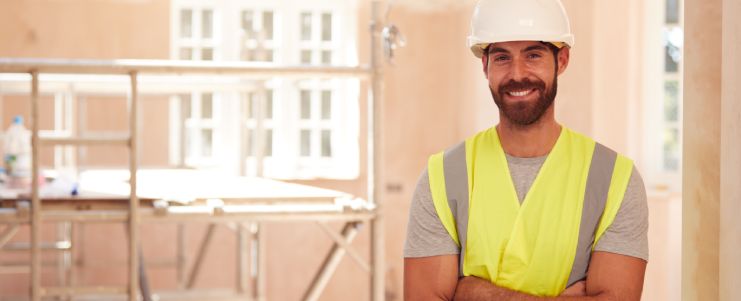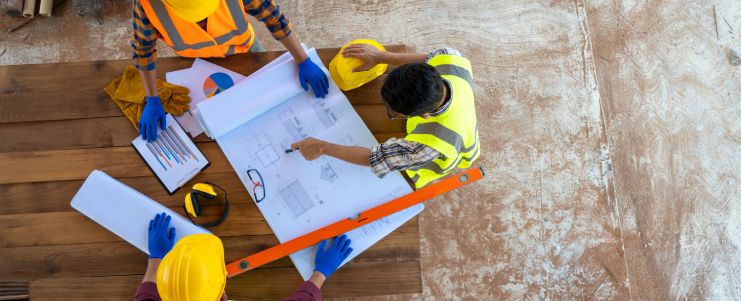
So you’ve decided to build a custom home for yourself and your family? Great.
A custom home allows you to personalize your home as per your preference. It’s a great way to showcase your creativity and fulfill your needs that ready-to-move houses may not meet.
The next step is choosing a custom home builder. Truth be told, it’s easier said than done. It’s a high-stakes task that requires you to quiz like FBI officers to contractors.
In this article, we will list 10 questions you must ask potential customer home builders before handing over your luxury custom home project.
1. How long have you been building custom homes in RGV?

The first thing you’d want to ask a custom home builder in Rio Grande Valley is how long they’ve been in the business. Usually, experience equates to expertise. For building your dream home, you should work with folks who have the expertise to handle the complexities that come with custom home construction.
Seasoned builders (think 10+ years) have likely encountered and overcome most challenges that can arise during construction. Think of unexpected soil conditions, tricky layouts, or integrating complex features like home theaters. Their experience acts as a vast problem-solving toolbox, ensuring they can navigate obstacles efficiently and effectively.
The builders should also have sufficient experience in the local market, i.e., the place where they’re building the house.
Thus, ask for the established date, the date of incorporation, website details, affiliations, portfolio, and references, among other things. Get to know them better and their work.
2. What recent projects have you completed?
You’d have to ask for builders’ portfolios to gauge their competence and experience in the field. But put focus on the most recent projects. The latest projects demonstrate how well they are in tune with the market needs of today.
Most custom home builders have a portfolio section on their website or have a brochure displaying the same. So ask for them. You should go over 3-5 recent projects they have completed. If possible, visit the property once to get a good look over everything. Does their style align with your vision? Look for variety and the ability to handle projects similar to yours in size and complexity.
3. What safety protocols do you follow?

Safety always comes first – not only for you but for the on-site workers. Therefore, safety protocols are among the first questions you should ask custom home builders.
Remember, accidents on a construction site can lead to lawsuits. A builder with a poor safety record puts you at greater risk of legal and financial burdens. Therefore, ask about the past mishaps the builder may have experienced and how they are tackling those mishaps.
A strong safety record is a good indicator, but it’s also crucial to understand the specific safety protocols a builder follows. Does the builder have a process for identifying potential hazards on the job site and implementing preventative measures? This could include proper fall protection, trench safety protocols, and safe handling of hazardous materials.
Builders must provide and enforce the use of appropriate PPE, such as hard hats, safety glasses, gloves, and steel-toed boots. PPE is essential for protecting workers from injuries.
So go over the safety protocols builders are going to employ.
4. Are you familiar with local laws on building custom homes?
Every locality has its own set of building codes that govern everything from structural integrity and fire safety to plumbing and electrical systems. For example, McAllen requires you to obtain a building permit before constructing a custom home. To obtain this, you’ll need to submit detailed plans of your home along with proof that it complies with building codes and any local zoning regulations in your specific city or county.
A builder who is familiar with the local laws ensures you get the permit on time and attracts no legal penalties down the line.
Therefore, inquire about the home builder’s knowledge of the local laws and if they can guarantee compliance with those laws.
5. How do you handle site cleanup and waste management?
A construction site can be a minefield of debris – scrap lumber, protruding nails, and leftover building materials. When you enter your dream custom home, you want to enter a home that’s clean and free from pollutants. Therefore, site cleanup and waste management should be the task of the builder. And more important, they should dispose of it by adhering to the local waste laws.
Inquire about their strategies for reducing waste, how they handle different types of waste, and their compliance with local regulations. What percentage of your construction waste is recycled? How do you handle hazardous materials on-site?
You should get more clarity on such issues.
6. How do you ensure the quality of your subcontractors and materials?

Custom homes are complex projects that often require specialists like electricians, plumbers, and roofers. The quality of the subcontractors a builder uses directly impacts the final product of your dream home.
So, unless you’re sourcing those services, you should ask the builder about the subcontractors involved.
Request a list of subcontractors the builder regularly works with and ask about their selection criteria. Inquire about the suppliers they use for materials and their quality assurance processes. If you visit previous projects completed by the builder, you should assess the quality of materials and workmanship firsthand.
7. How will you keep me updated on the project’s progress?

Regular updates from your builder are crucial for maintaining open communication and fostering trust throughout the process. Knowing the project is progressing smoothly and according to the timeline can alleviate potential anxieties.
So go ahead and inquire about their update process. They might give a brief at the end of the week or send daily updates through email/chat.
Regular communication empowers you to stay connected to the project’s progress. You’ll be aware of upcoming milestones, potential delays, and any decisions that might require your input.
8. How are your payments structured?
The cost to build a custom home in RGV is significantly high, and a clear understanding of the payment schedule is vital for proper financial planning.
In the construction industry, invoicing is an aspect that fluctuates the most. Some builders take half of the amount upfront, while others demand less upfront capital. A well-defined payment schedule eliminates any potential confusion about what’s expected from you financially throughout the project. This transparency helps avoid unexpected invoices or cash flow issues that could disrupt the construction process.
9. Do you offer warranties?
Warranties are a testament to quality and superior workmanship. Builders that do top-notch work and engage the best subcontractors do not shy away from offering warranties. A solid warranty protects you from unexpected financial burdens in the event of defects or malfunctions.
Therefore, ask if the custom home builder offers any warranties. Please note construction backed by warranties may call for a premium construction price. But in any case, it’s well worth it.
10. How do you handle conflict?
Construction projects involve many moving parts, and unforeseen situations can pop up. Delays, rise in material cost, natural disasters, anything can happen. Moreover, you may find out that the work being done isn’t up to mark.
A good contractor should be open to discussions and differences in opinion. Therefore, ask builders how they engage with conflicts. By asking how they handle conflict, you’re gauging their ability to work collaboratively with you and other parties involved (subcontractors, architects, and others) to reach a solution that benefits everyone.
Choose the Right Custom Home Builder
Asking the 10 questions mentioned above will help you find the right luxury custom home builder to work with. Besides that, do not hesitate to ask questions specific to your case.
That said, Trevino Construction ticks all the right boxes when it comes to experience, safety protocols, local expertise, local laws, construction materials, warranties, waste management, and more. Contact us today to learn more about our construction process.












